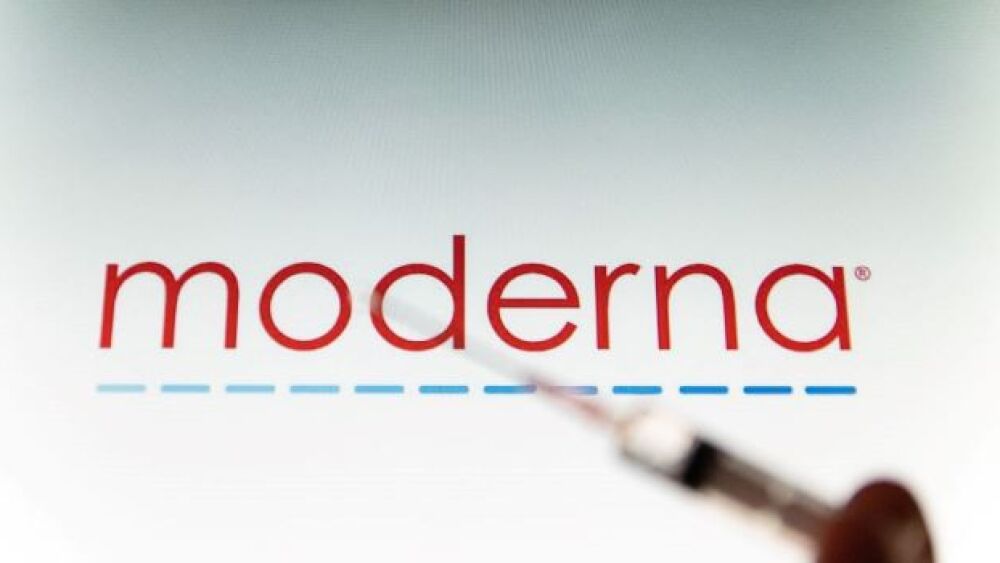Moderna announced mixed interim results Thursday from a Phase III trial of mRNA seasonal flu vaccine candidate, mRNA-1010.
Nicolas Economou/NurPhoto/Getty Images
Moderna announced mixed interim results Thursday from a Phase III trial of mRNA seasonal flu vaccine candidate, mRNA-1010.
The trial enrolled 6,102 adults and tested mRNA-1010 against a licensed seasonal influenza vaccine. Moderna’s shot proved superior in two common strains of influenza A, but fell short against the B/Victoria- and B/Yamagata-lineage strains.
Moderna president Stephen Hoge pointed to influenza A as the culprit for the “overwhelming majority of flu-related disease in older adults.” The release stated that the A strain leads to the majority (over 95%) of influenza-related hospitalizations in adults.
Still, influenza B has become an emerging threat, particularly in pediatric populations.
“Multiple studies have suggested increased potency of influenza B virus in causing severe disease and mortality,” including a Canadian study that found “significantly higher” mortality rates in children younger than 16 years, according to a study published in the European Respiratory Journal.
Moderna noted that influenza B strains are “more frequent in younger populations” and have already updated its agile mRNA platform to elicit a stronger response. An upcoming study will seek to confirm that claim.
Overall, the mRNA-based flu vaccine was considered well tolerated, although solicited adverse reactions to mRNA-1010 was higher than the comparator group – 70% versus 48% of participants. The most commonly reported were pain and swelling at injection site, headache, myalgia and fatigue. No serious adverse events occurred in either group.
Just One of Many Approaches
mRNA-1010 is just one of Moderna’s five influenza vaccine candidates. This one encodes for hemagglutinin, a surface glycoprotein – the primary target of currently available flu vaccines. Others in the pipeline include both HA and neuraminidase antigens to target multiple proteins of the virus’ lifecycle to improve efficacy.
Pfizer is also in the race to an mRNA influenza vaccine. The company dosed its first of 25,000 U.S. Phase III participants in September.
The mRNA vaccine platform is particularly compelling for the seasonal influenza waves due to its flexibility. With past technologies, predictions of most common strains for the season often missed the mark, dropping effectiveness from 40-60% to 30% or less. The mRNA technology would allow a quick update based on what is actually circulating and have a new batch out to the public that season.
Moderna expects this first interim analysis of efficacy to be reviewed by the Data and Safety Monitoring Board before the end of first quarter. At that point, the determination will be made as to whether or not more data is needed for final analysis.






